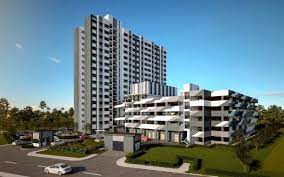The real estate market is an ever-evolving sector that Selangorku House influences economies and communities worldwide. From residential properties to commercial spaces, the dynamics of real estate are shaped by a multitude of factors including economic trends, societal changes, technological advancements, and environmental considerations. In this article, we will explore the current trends, challenges, and opportunities in the real estate landscape, providing insights for potential investors, homebuyers, and industry professionals.
Current Trends in Real Estate
- Sustainability and Eco-Friendly Developments
With growing awareness about climate change and sustainability, there is a significant shift towards eco-friendly real estate developments. Many builders and developers are now prioritizing energy-efficient materials, sustainable building practices, and renewable energy sources. Green certifications, such as LEED (Leadership in Energy and Environmental Design), are becoming more sought after, attracting environmentally-conscious buyers. - Remote Work and Housing Demand
The COVID-19 pandemic has changed the way people work, leading to a rise in remote work arrangements. As a result, many individuals are seeking homes in suburban or rural areas that offer more space and a better quality of life. This trend has increased demand for single-family homes, driving up prices in previously less-desirable areas. - Technology Integration
The real estate industry is increasingly leveraging technology to improve efficiency and enhance the customer experience. Virtual tours, drone photography, and AI-driven property management tools are becoming standard practices. Additionally, blockchain technology is being explored for secure transactions and smart contracts, promising to streamline the buying and selling process. - Urbanization and Mixed-Use Developments
Urbanization continues to shape real estate trends, with cities expanding and more people moving to urban centers. Mixed-use developments, which combine residential, commercial, and recreational spaces, are becoming popular as they promote walkability and community engagement. These projects not only provide housing but also contribute to local economies by creating jobs and attracting businesses.
Challenges in the Real Estate Market
- Affordability Crisis
One of the most pressing challenges in real estate is the affordability crisis. Home prices have soared in many regions, making it difficult for first-time buyers and low-income families to enter the market. The gap between wages and housing costs continues to widen, raising concerns about housing inequality. - Regulatory Hurdles
Real estate development is often subject to stringent regulations and zoning laws, which can delay projects and increase costs. Navigating the complex landscape of permits and approvals can be challenging for developers, especially in urban areas where land use is tightly controlled. - Market Volatility
The real estate market is susceptible to economic fluctuations, which can lead to volatility in property values. Interest rate changes, inflation, and economic downturns can significantly impact buyer confidence and investment returns. Real estate professionals must stay informed and adaptable to navigate these challenges. - Environmental Concerns
Natural disasters and climate change pose significant risks to real estate investments. Properties in flood-prone or wildfire-affected areas may face declining values and increasing insurance costs. Investors and developers are increasingly focusing on resilience and risk management strategies to mitigate these environmental challenges.
Opportunities in Real Estate
- Investment in Rental Properties
As homeownership becomes less attainable for many, the demand for rental properties is on the rise. Real estate investors can find lucrative opportunities in residential and commercial rental markets, particularly in regions experiencing population growth. Short-term rentals, such as those listed on platforms like Airbnb, also offer potential for high returns. - Revitalization of Urban Areas
Many cities are investing in the revitalization of urban neighborhoods, creating opportunities for real estate development. Investors can benefit from government incentives and grants aimed at improving infrastructure, public spaces, and housing in these areas. - Technological Innovations
The integration of technology in real estate offers numerous opportunities for entrepreneurs and investors. Companies focused on PropTech (property technology) are transforming traditional real estate practices, from marketing to property management. Those who embrace these innovations can gain a competitive edge. - Affordable Housing Initiatives
As the demand for affordable housing increases, there is an opportunity for developers to engage in projects that prioritize social responsibility. Collaborating with government agencies and non-profit organizations can lead to successful affordable housing initiatives that benefit communities and provide stable returns.
Conclusion
The real estate landscape is a complex and dynamic environment, shaped by a variety of trends and challenges. For investors and industry professionals, understanding these factors is crucial for making informed decisions. As the market continues to evolve, opportunities abound for those who are willing to adapt and innovate. Whether through sustainable development, technological advancements, or investment in affordable housing, the future of real estate holds promise for a diverse range of stakeholders.

